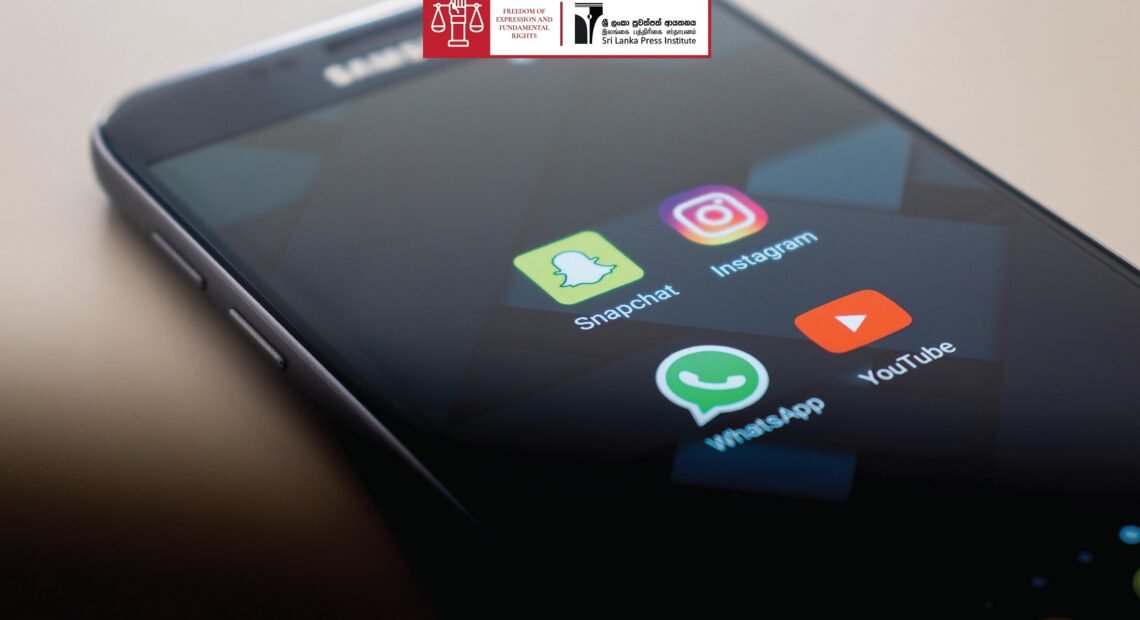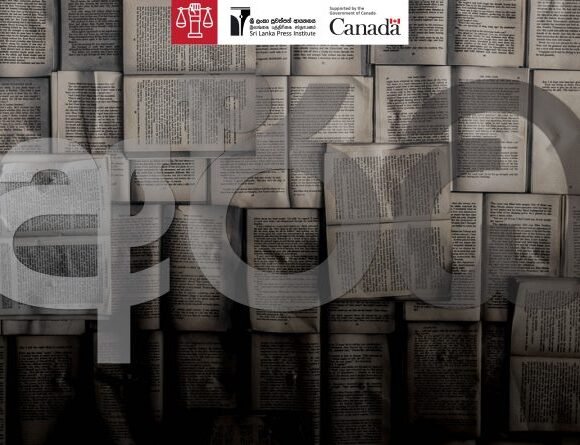R. Ram
Keheliya Rambukwela, Minister of Mass Media, and Ali Sabri, President’s Counsel and Minister of Justice are seeking cabinet approval to freeze social media to control fake news. They jointly submitted a cabinet paper on the matter. This is in order to guide national security and a good social structure, the paper stated and announced this in public.
Of the total Facebook accounts used in Sri Lanka, about 200,000 are without owners. Action should be taken to stop such accounts from existing. Thus, a decision was made to take legal action through government agencies to regulate and control these accounts, said Mass Media Minister Keheliya Rambukwela.
“Initiatives are taken to implement a new programme in compliance with the current laws in use. Through Facebook accounts without owners, activities to encourage terrorism, fundamentalism, and racism take place. This creates the opportunity to incite various anti-social activities and ruin the younger generations. At the same time, negative comments about this country spread through social media. Through this, they are creating a reactionary mindset to control the activities of the people. The country will not benefit from this. These situations have to be changed. For this, social media should be regulated. We are having wide-scale discussions about this” said the Justice Minister, Ali Sabry. President’s Counsel.
Further, he said, they were studying “the Protection from Online Falsehoods and Manipulation Act” implemented in Singapore, Malaysia, and India. Action has been taken against the spreading of fake news in Sri Lanka. In Sri Lanka. 17% of active social websites are fake. Lies are then spread by this 17%. However, no action can be taken against these people. Further, your freedom is only unto the other man’s nose tip. You cannot punch him in the nose. If you do so, it is a violation of his freedom and right. Here, I wish to point out that it is an extra-judicial action, he continued.
As per data recorded in January this year, there are 7.9 billion social media users in Sri Lanka. That is 36.8% of the population of Sri Lanka using social media. This figure compared to last year has risen by 1.5 million ( 23% ).
On 22nd November 2020, the Advisory Committee of the Ministry conducted a meeting on Regulating Social Media. The Minister for Mass Media, Keheliya Rambukwela who addressed the meeting said, “A national approach is necessary to regulate social websites. Within the next few weeks, appropriate measures are to be taken towards this. Abusive actions through the media should be controlled at least to a certain extent. For this purpose censorship is necessary. In 2010 he made an effort to do this. But it was not implemented”.
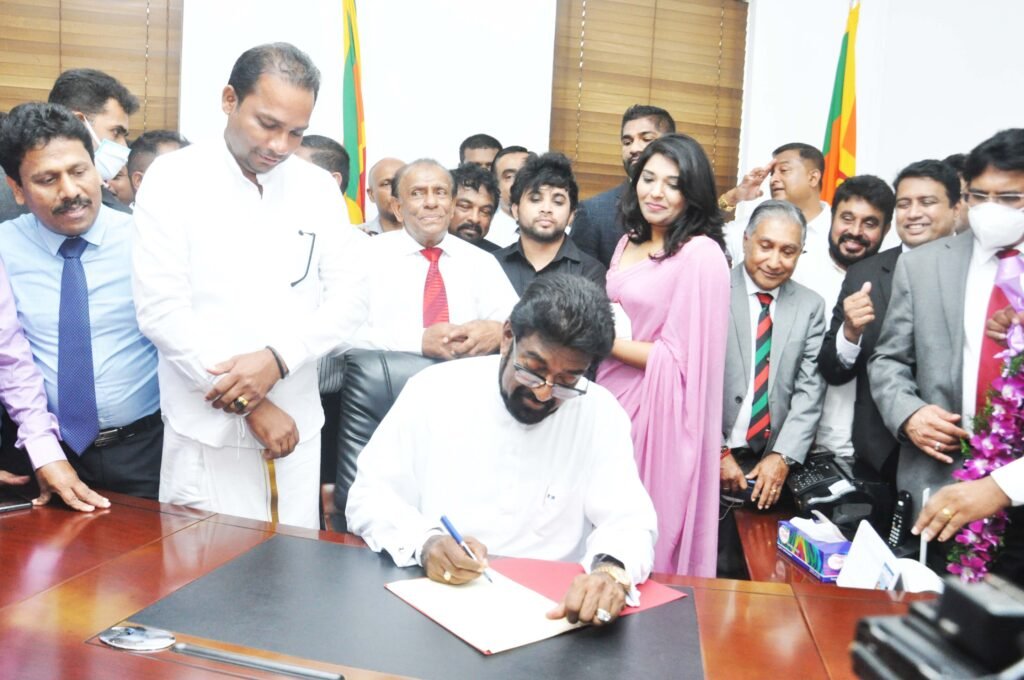
Following his speech, members from the ministry’s advisory committee and opposition members emphasizing the necessity for such regulation gave their suggestions.
Professor Charitha Herath, Podujana Peramuna national list Member of Parliament, said, beyond social media control, it should be applied to TV and radio stations.
Minister of Education, Professor G.L.Peiris citing the law passed recently in Singapore that censors websites and social media said that we must study the laws passed in countries like Singapore and formulate a new approach.
At the same time, another Podujana Peramuna Parliamentarian Dr. Suren Ragavan said it is necessary to take measures that stop racism on social media.
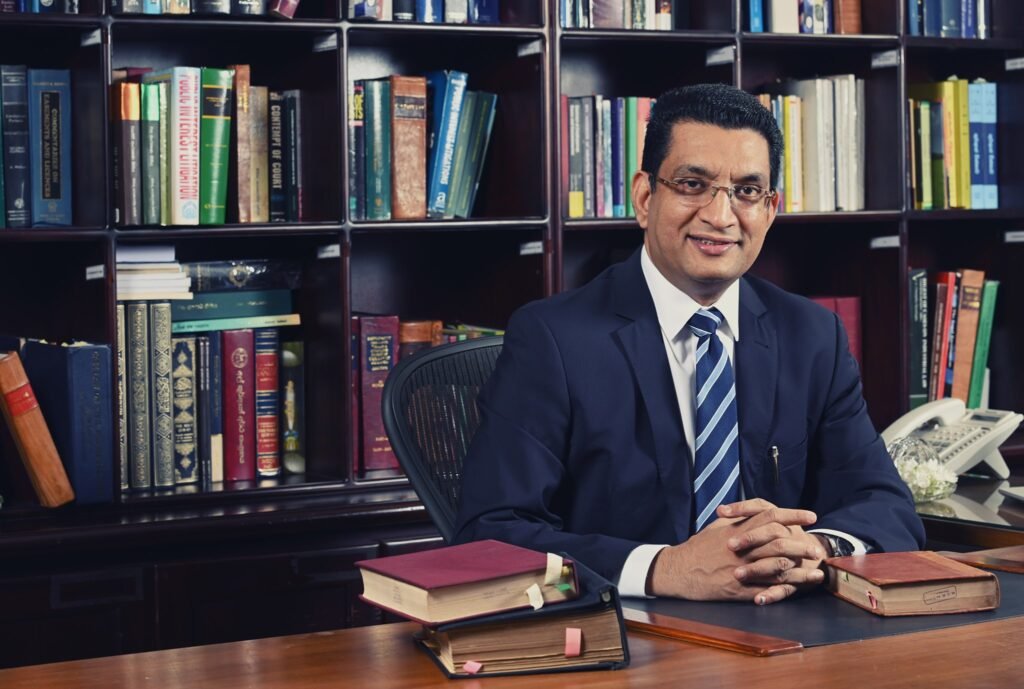
To promote awareness about fake news and its threat to national security, the National Institute of Security Studies organized a discussion with the participation of the Primary Task Group of National Security. The opening speaker at the event, Mohan Samaranayake, Director General of Government Information Department, said that false and fabricated information are used as weapons against the change of governments. Hence, in a country like Sri Lanka, a regulatory mechanism against fake news is necessary for the local structure.
So, it is clearly evident that the present regime is working full scale to regulate social media.
In the whole world, only five nations: USA, UK, Australia, New Zealand, and Canada. can be taken as examples of ethical regulating social media. Taking them as models, governments of other nations also draft laws appropriate to the conditions prevailing in their own countries.
Based on the laws in Singapore and India, Minister of Education Professor G. L. Pieris and Minister of Justice, President’s Counsel Ali Sabry expressed their views about the new regulatory law going to be introduced in Sri Lanka. So, it is essential to pay attention to the laws in force in Singapore and India regarding social media In Singapore Info-com Media Development Act of 2016 and Protection from Online Falsehood and Manipulation of 2018 are in force.
Through these laws Singaporean Government is granted the power to autocratically order ‘immediate change and rectification’ of matters found on websites and, if the necessity arises, to impose a fine of up to US$ 700,000 with a jail sentence of up to 10 years if found guilty. International Journalists and Human Rights Committees criticize that in Singapore under Police rule, these laws with such provisions oppress media, journalists, and freedom of expression of individuals
There is special attention given to these laws in Singapore, the South China Morning published, a country in the frontline amongst the countries that do not have external mass media relations globally, and the US-based Bloomberg that implements social media regulations, have heavily criticized this.
These reveal the depth of the sub-sections of laws implemented to control social media in Singapore. The Sri Lankan government too planning to take it as a precedent, shows its underlying intent.
At the same time, India, our neighbor and ‘leader ’ of the South Asian Region, having passed the Information Technology Law in 2000, published new Information Technology regulations regarding social media last February. According to this, the Central Government of India announced ‘Guidelines for Intermediaries and Digital Media Ethics Code 2021’ that contains regulations to ban any contents that may affect the Sovereignty and Integrity of India and be a threat to its National Security.
An announcement was made that before May 25th web service providers should consent to abide by these regulations. If otherwise, legal protection will not be available within the territorial boundary of India. Accordingly, Ravisangar Prasad, Union Minister of Electronics and Information Technology of India officially announced that from May 25th the new regulations will be implemented.
India has 53 million users of Watsapp, 44.8 million users of YouTube, 41 million users of Facebook, 21 million users of Instagram, and 1.75 million users of Twitter. In this situation, in the new regulations that have come into force, there are provisions to take criminal action on complaints regarding the contents published by these establishments. With the Prevention of Terrorism Act (Sri Lanka) already in force, when the current rulers of Sri Lanka draft laws with Indian regulations as precedents, this may worsen the existing situation.
Against this backdrop, the Free Media Movement expressed its concern about the SL government’s reckless move to obstruct the right to freedom of expression on social media. In a media report published by FMM, it mentioned ‘the government can control the freedom of expression for following reasons, such as nation’s security, spreading false news and prohibiting hate speech. However, all these should be according to the law. Further, they should not violate the right to enjoy the freedom of expression guaranteed by Article 14 of the Constitution and confirmed in various court decisions.
On 15th March 2021, a discussion took place between Mass Media Minister Keheliya Rambukwela and the representatives of The News Paper Society, The Editors’ Guild, Free Media Movement, Tamil Media Alliance, Muslim Media Forum, Working Journalist Association, South Asia Free Media Association and the Sri Lanka Press Institute.
A proposal based on the social responsibility and freedom of expression, including the Press, Television, Radio, and Digital Media was made for the establishment of the Sri Lanka Press Commission with self-regulatory policies.
The proposed Commission will have a committee composed of a current professional as its media representative, while state media representatives and people with expertise in finance, law, information technology, and the modern media sector will serve on the committee.
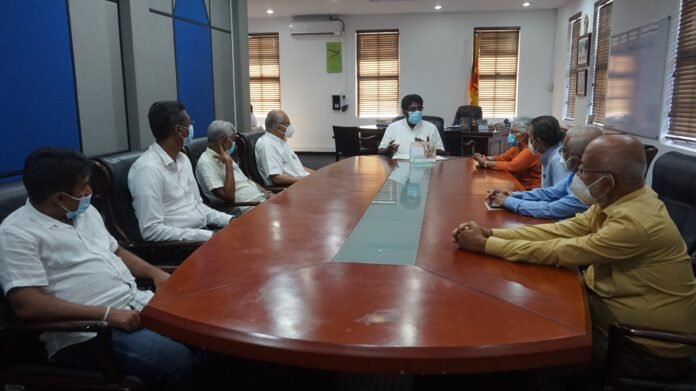
Further, the proposed Commission will function as mediator and arbitrator, in matters related to confirmation that the code of ethics is followed, inquiries into complaints and its own observations, issue licenses for telecasting services and contents, registration of media, deciding the fee, deciding license period, agreements to abide by license on contents and imposition of fines after inquiries.’ was mentioned.
These activities will be in accordance with Arbitrator’s Proceedings mentioned in Arbitration Act No;1 of 1995. It is also stated that as the next stage to these proceedings appeal could be made to the Appeal Court.
However, Minister of Mass Media, Keheliya Rambukwela gave no assurance of these proposals. On the contrary, a media report about his meeting with the Press Institute of Sri Lanka said that he had only said that jointly with everyone, he would work towards a solution appropriate to the media and the public.
The People’s Liberation Front Member of Parliament, Dr. Haranie Amarasooriya who said “Rather than the traditional media, the digital media websites are capable of distorting information and spreading hate inciting tales” and requested the government to consider the importance of social media, when permitting contradictory opinions and criticisms.
With this type of request rejected and the law, approved by the cabinet in the manner the government representatives say, passed, and implemented will destroy the freedom of expression and lead the country into the grip of dictatorship.
சமூக ஊடகங்களை ஒழுங்குபடுத்த முனையும் அரசின் முன்னுதாரணங்கள் வெளிப்படுத்தும் சமிக்ஞைகள்
පූර්වාදර්ශවලින් සන් කරන්නේ සමාජ මාධ්ය නියාමනයට රජයේ උත්සාහයයි.


